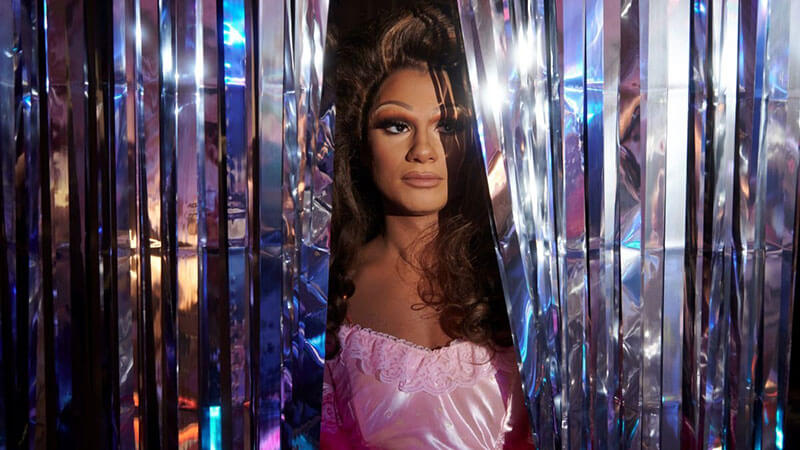Amrou Al-Kadhi On The Power, Positivity & Transformative Potential Of Drag
As someone who suffers with OCD, it’s rare to find a moment where I feel truly present. Ruminations about mistakes from the past or hypothetical problems in the future that serve no purpose whatsoever detract from experiencing the power and potential of the now. It can be a hellish condition. But it’s why drag means so much to me – for some reason, when I’m on stage and in drag, I feel utterly present. The power of makeup, costume and character allows me to escape myself and the prison of my mind, and I am truly connected to the audience in that room – for that moment, nothing exists but that connection.
Drag has, in a very real sense, saved my life. It’s helped rewire parts of neurology, sublimating things I once perceived as negatives into hopeful positives. I was bullied mercilessly at school for being ‘effeminate’; it was ingrained into me by family, school and society that I was failing at being a boy, and that this would have disastrous consequences in later life. To be able to not only embrace this femininity but unadulteratedly celebrate it on stage, has transformed it from a perceived weakness into my greatest strength.
I sometimes shock myself by how powerful I feel on stage. As Glamrou, I feel like I can say and do absolutely anything – and I have! From singing love songs to Allah in drag, making love to a toy in the shape of an antidepressant and effectively experiencing naked exorcisms in front of audiences, I’m never nervous when I’m Glamrou. Out of drag, I enter situations in a state of hypervigilance, as if something catastrophic could happen at any given moment. In drag, I literally don’t feel scared of anything – not even of my heritage.
I was raised between Dubai and Bahrain, and while I had a lovely childhood materially, it was ingrained in me that homosexuality would lead to an eternity in Islamic hell. Throughout my upbringing, I was profoundly terrified at the very real thought that I would burn for eternity, all because of who I was and what I desired. It’s a core wound that will take a lifetime to heal. And it’s why, when I moved to the UK as a teenager in 2002 and came out as gay, I had a difficult time integrating this with my Arab and Muslim heritage. I distanced myself from them massively, essentially pretending to be white for my new British schoolmates.

But in drag, I’ve been able to wear the clothes of my culture (like the beautiful abayas that the women of my childhood paraded around in so vividly). It’s helped me connect to my heritage in my own queer way.
My story echoes in LAYLA, my debut feature film as writer and director that premiered at Sundance this year. It explores how LAYLA, a young Palestinian non-binary drag queen, has compartmentalised their identity so strictly that they have completely severed their queerness from their heritage and family. It’s a kind of splitting that leads to damaging consequences in their romantic life, too, where they have learned to code-switch and modify who they are according to their environment or the needs of others.
Ultimately, the film hopes to celebrate the unexpected magic that abounds when we unify these fragmented aspects of ourselves – and I have drag to thank for teaching me how to do that for myself.
Amrou Al-Kadhi is a British-Iraqi writer, performer and filmmaker based between London and LA. Their work includes the live drag show GLAMROU, the memoir Life As A Unicorn: A Journey From Shame To Pride And Everything In Between and the film LAYLA. Writing credits also include TV shows Little America (season 1) and American Horror Stories (season 3)
Get the best of Service95
delivered straight to your inbox
By subscribing to our newsletter(s) you agree to our privacy policy. You can unsubscribe at any time.








